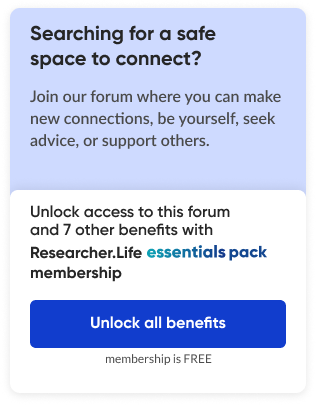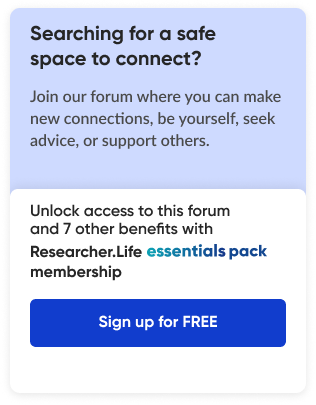In pursuit of contentment: How to align personal and professional goals as a researcher

How do you feel about working on Sundays? If you were to ask me this question, I’d say that my weekends are sacrosanct; I’d work extra over the week or even work overnight on weekdays just to make sure that my weekends are sans e-mails and meetings. Just as this is important to me, everyone has their personal preferences and priorities. People have different approaches to life and this is what guides our choices about our career as well as personal life at every stage.
We all know that the research life is notoriously stressful and demanding. Between writing grant proposals, attending conferences, doing lab work, revising manuscripts, conducting studies, and managing personal life, at times, it could feel like you are stuck in a patch of quicksand. And walking this tightrope of personal and career goal alignment can be particularly challenging for early career researchers who are finding their footing in academia.
If your personal and professional goals are not in sync, it can lead to a sense of discontent. Left unaddressed, these feelings can become the cause of mental and physical health issues. We are likely to experience feelings of happiness and contentment when we feel that we are directing all our efforts to move in the direction we have set out for ourselves. So let’s look at some ways in which we can manage our personal and professional lives better.
1. Bring your personal goals to the fore
Most of us tend to put our personal goals on the backburner while trying to make a mark in our career. While you plan and work for your professional goals, do think about the aspirations you have on the personal front. If in the next couple of years you want to plan for a child, or get married, or buy a house, or visit a country you have always wanted to, plan for these goals as well. Thinking actively about your personal goals will keep you motivated and in fact help you make better decisions about your professional goals too.
“I had initially planned to wait until the end of my PhD before trying for a baby. However, by the middle of my second year, I had begun to have second thoughts,” says biochemistry and molecular biology researcher Vicky Howe who decided to get married and have two kids while completing her PhD. Though she had to juggle between family and work, she adds that, “I think we’ve done alright.”
2. Know your priorities
As a researcher in a hypercompetitive space, you may have to make several choices to ensure career advancement. But when you select a lab or apply for a job, think about whether you are prepared to move to another city or work odd hours in the lab. Things that matter to you the most can affect your feelings of satisfaction and contentment in the long term and have a huge impact on your daily life.
Shivanee Shah who has over 12 years of experience in academic research, including immunology, molecular biology, stem cells, vaccine development and autoimmunity, says, “For my first postdoc, I had the opportunity to move to another city, to a well renowned university after my PhD, but decided against this opportunity as my husband would not have been able to move with me and a long-distance relationship was not something I was ready for.” Being aware of what matters to you can help in making better long-term decisions.
3. Plan your finances
Managing your finances is absolutely essential to ensure you never have to let money issues dictate the decisions you have to take on the professional front. Imagine that you really need to take a break from work to focus on your family or yourself. This would be possible only if you have planned your funds. Money issues can force you to push back your personal plans and ultimately cause feelings of frustration. So plan your finances well so that the safety net can allow you to make decisions that matter on the personal front.
4. Build a support system
Having a strong support group or system can help you perform your best and maintain a work-life balance. So depending on your needs, consider hiring help to take of your household activities, or looking for a daycare center for your child. Also, try to connect to people at and off work as it is always helpful to have someone with whom you can share your concerns and rely on in times of need. Having supportive neighbors, understanding colleagues, and dependable friends can be a big plus. It will allow you time to accommodate more personal tasks and get some much-needed “me” time.
Sharing her experience of completing PhD, Rachel Dunn, assistant professor at Des Moines University in U.S., says that having an understanding colleague in Elaine Gregersen (associate professor in law at Northumbria University) helped her sail through during the doctorate. She says, “I realised that I can’t go through this alone and Elaine became a big part of my support group.” And she goes on to say: “If you are doing a PhD and you don’t have an Elaine, get one!”
5. Don’t be afraid to express your needs
Most of us are hesitant to share our personal needs or problems with our supervisors for the fear of being thought of as unprofessional. However, it is a fact that most researchers face high levels of stress and find it difficult to balance their personal life while meeting professional demands. Therefore, instead of pushing yourself too hard to the point of feeling burnt out or suffering mental health issues, see if you can talk to your colleagues or supervisor.
“Openly prioritizing and planning my work and life around each other greatly enhanced my competency and enthusiasm at work,” says Karishma Kaushik, an assistant professor who also runs a lab in Pune, India, who decided to give equal attention to herself and her family while completing her PhD. Sharing your private life and the struggles you are going through can in fact help you bond better with your colleagues and you may get help to manage your different roles with more ease.
It's all about the balance
Striking the right balance between personal and professional priorities is no mean feat. However, the stepping stone to achieving this is knowing what you want. So be open, introspect, and think of what you want and where you want to be in the next few years. The feelings of happiness and contentment stem from giving equal precedence to things that matter to you the most.
This is best echoed by Kourosh Saeb-Parsy, transplant surgeon at Cambridge University Hospitals, U.K. who says, “I don’t buy the idea that you have to sacrifice family life for your profession. Historically, that might have been the case, but times are changing, and I tell my students that you have to aim for both.”
To hear more the personal stories of researchers, visit the Researchers and Their Stories section.
Comments
You're looking to give wings to your academic career and publication journey. We like that!
Why don't we give you complete access! Create a free account and get unlimited access to all resources & a vibrant researcher community.














